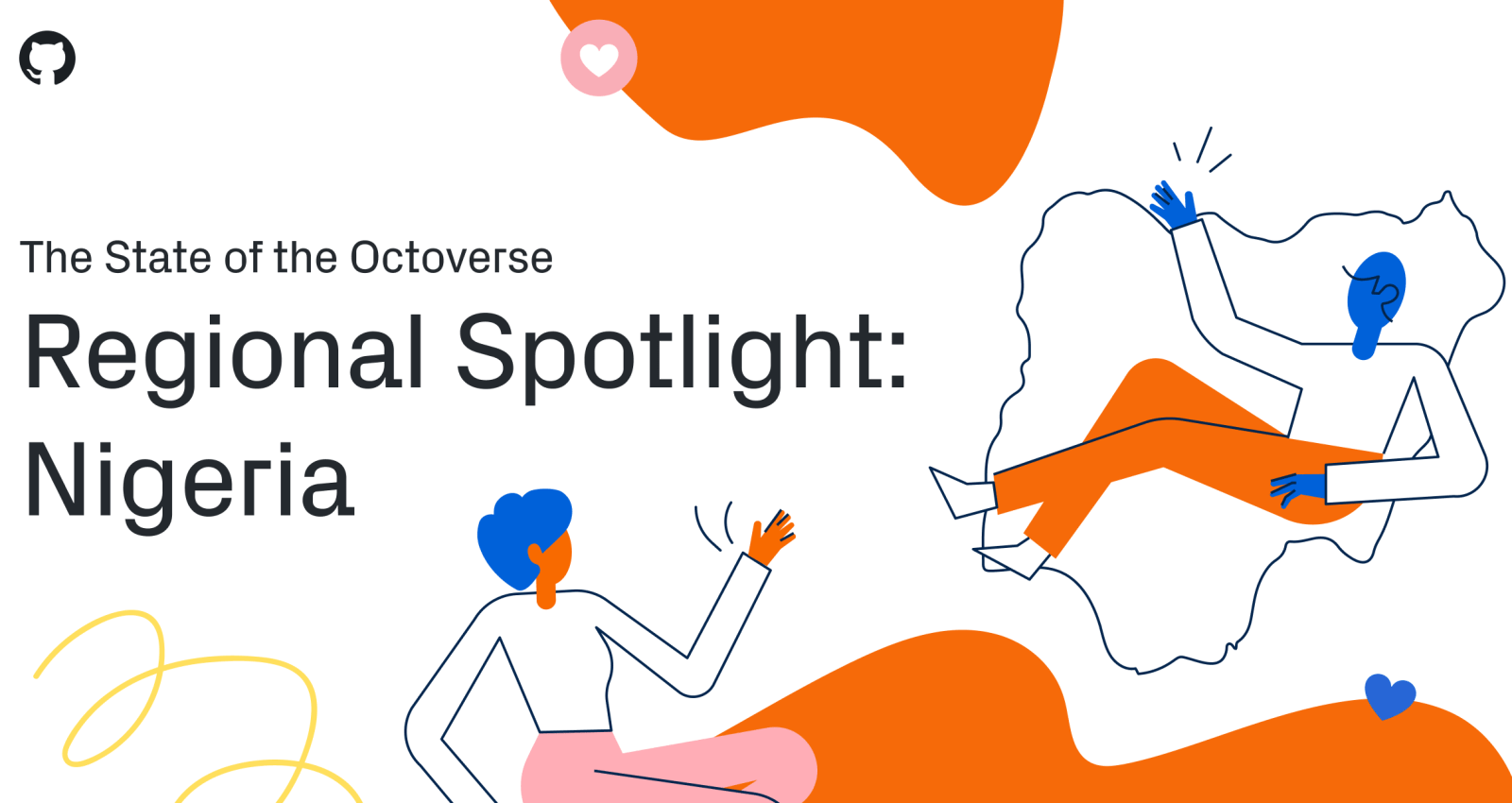Octoverse regional spotlight on Nigeria
Economic changes, expanding educational opportunities, and wider internet access are mobilizing a talented and entrepreneurial community.

This article is the first in a series based on The State of Octoverse—trends and insights into GitHub activity, the open source community, and more from the GitHub Data Science Team.
In February, we reflected on a trip to Nigeria and everything we learned about its growing tech community. Economic changes, expanding educational opportunities, and wider internet access are mobilizing a talented and entrepreneurial community. And together, they’re pushing software forward in Africa’s largest economy.
A growing developer community
On our trip, we saw this changing landscape close up at packed meetups and student groups. In our 2018 Octoverse Report, the numbers were clear. Across several measures, the developer community in Nigeria is growing fast. In 2018 alone, we’ve seen:
- 1.6x more developers contributing on GitHub.* Nigeria represents the fourth fastest growing developer community on GitHub with 1.6x as many contributors in 2018 than in 2017.
- 2.1x more organizations. Nigeria is high on our list of fastest growing countries by organizations created with 2.1x more organizations created this year than last year.
- 1.8x more repositories and 1.7x more open source repositories. Nigeria also made our list of fastest growing countries by repositories created, nearly doubling the number of projects they’re collaborating on.
To learn more about our data and methodologies, check out this year’s State of the Octoverse.
*We define contributors broadly as any user taking a substantive action on GitHub (pushed code, opened an issue, or merged a pull request, for example) that added new content to the platform in a public or private repository.
Growth behind the numbers
An important startup ecosystem
Behind our numbers is a young, growing community excited about software development and its potential to address some of the challenges Nigeria faces today. With excitement and opportunity comes an expanding startup ecosystem and the venture capital, accelerators, training programs, and hubs to support it.
Nigerian startups are growing accordingly across industries. The fintech industry is booming in particular, as a result of a changing financial landscape. According to Stephen O’Grady, Principal Analyst at Red Monk:
In 2016 and 2017, 42 percent of Nigerians had access to traditional financial services, which has lead to growth in projects that have tried to bring these to the Nigerian population. Without existing infrastructure, they have the opportunity to take the next step forward.
Nigeria still relies heavily on cash, but fintech companies like AmplifyPay, Paga, and PayStack (which you can find on GitHub) are streamlining the way people bank and gaining tens of thousands of individual and business users. With millions of dollars raised, these companies underscore an investment trend that has spread across African tech ecosystems, reaching a high of $195 million in 2017 alone. These startups have also spurred local developers to build an ecosystem of applications and integrations.
A supportive student community
Through GitHub Education and our global group of Campus Experts, we’ve had the opportunity to support Nigerian students building tech communities that train and mentor new developers within their schools. So far, we’ve watched local Campus Experts create summer coding camps for women, host and speak at national software summits with 1,000+ attendees, organize open source meetups, and more.
Learn more about our Campus Experts program
We’re excited to see what Nigeria’s growing developer community builds on GitHub into 2019 and beyond. Want to learn more? GitHub Data Scientist Anna Filippova and Red Monk Principal Analyst Stephen O’Grady chatted about why Nigeria is trending in a recent GitHub Universe session.
Stay tuned for more posts that dive into data on the GitHub Blog—or check out The State of the Octoverse to see what a community of 31 million developers can accomplish in a year.
Tags:
Written by
Related posts

GitHub availability report: January 2026
In January, we experienced two incidents that resulted in degraded performance across GitHub services.

Pick your agent: Use Claude and Codex on Agent HQ
Claude by Anthropic and OpenAI Codex are now available in public preview on GitHub and VS Code with a Copilot Pro+ or Copilot Enterprise subscription. Here’s what you need to know and how to get started today.

What the fastest-growing tools reveal about how software is being built
What languages are growing fastest, and why? What about the projects that people are interested in the most? Where are new developers cutting their teeth? Let’s take a look at Octoverse data to find out.